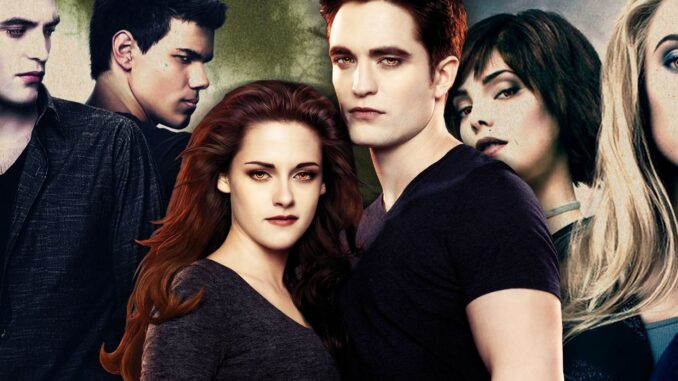
From Twilight's Gloom to Hollywood's Bloom: Kristen Stewart and Robert Pattinson, Where Are They Now?
The air crackled with a palpable energy when Kristen Stewart and Robert Pattinson graced the red carpet together. They were the faces of a generation, their names inextricably linked to the cultural phenomenon that was Twilight. Their off-screen romance, equally captivating and scrutinized, fueled the frenzy surrounding the vampire saga. But the Twilight years, bathed in the sickly sweet glow of manufactured romance and breathless media coverage, are now firmly in the rearview mirror. So, where are Kristen Stewart and Robert Pattinson now? The answer, thankfully, lies in the nuanced, challenging, and ultimately rewarding paths they've carved for themselves, far beyond the glitter and fang.
Kristen Stewart, initially pigeonholed as the introverted, brooding Bella Swan, has emerged as one of the most compelling and versatile actresses of her generation. She hasn’t simply rejected the Twilight brand, she's actively dismantled it, brick by painstaking brick. Instead of opting for big-budget blockbusters, Stewart has gravitated towards independent films, showcasing a raw vulnerability and undeniable talent that was often overshadowed by her Twilight persona. Her collaboration with Olivier Assayas in films like Clouds of Sils Maria and Personal Shopper earned her critical acclaim and cemented her status as a serious actress. In Sils Maria, she captured the simmering insecurity and quiet ambition of a personal assistant to a demanding actress, earning a César Award, the French equivalent of an Oscar, a remarkable feat for an American actress. These roles are not about surface-level beauty or romantic fantasy; they are about grappling with complex emotions, exploring the intricacies of human relationships, and pushing the boundaries of cinematic storytelling.
Beyond her dedication to independent cinema, Stewart has become a prominent voice for LGBTQ+ representation and self-acceptance. She has openly discussed her sexuality and embraced her identity, becoming a role model for young people struggling with their own journeys. This authenticity, a stark contrast to the carefully curated image she presented during her Twilight years, has resonated with audiences and solidified her position as a modern icon. Even her recent foray into the mainstream with Charlie's Angels demonstrated her willingness to subvert expectations, injecting a dose of rebellious cool into a familiar franchise. Kristen Stewart has not just survived Twilight; she has thrived in its aftermath, transforming into a complex, multifaceted artist whose work challenges and inspires.
Robert Pattinson, similarly burdened by the weight of his Twilight fame, has embarked on a similarly impressive, albeit distinct, journey of self-discovery. While Stewart focused on independent dramas, Pattinson initially embraced a more experimental approach, choosing roles in quirky, often bizarre, films that allowed him to shed his teen heartthrob image and explore the darker, more unconventional aspects of his craft. Films like Cosmopolis, Good Time, and The Lighthouse showcased his commitment to challenging roles and working with auteur directors. In The Lighthouse, a stark, black-and-white psychological thriller, he delivered a tour-de-force performance, embodying the spiraling descent into madness of a lonely lighthouse keeper. These roles, often physically demanding and emotionally draining, proved that Pattinson was more than just a pretty face; he was a serious actor willing to push himself to the limits.
Like Stewart, Pattinson's post-Twilight choices have been about carving his own path, defying expectations, and proving his versatility. He possesses a remarkable ability to disappear into his roles, embodying characters with a depth and complexity that belies his initial image. This dedication to his craft culminated in his casting as the titular character in The Batman, a role that has cemented his transition from teen idol to respected actor. His portrayal of Bruce Wayne is not the charismatic playboy audiences have come to expect; it's a darker, more brooding and psychologically damaged figure, grappling with his own demons and the corruption of Gotham City. With The Batman, Pattinson has not only proven his ability to lead a major franchise, but he has also injected a much-needed dose of realism and complexity into the superhero genre.
In conclusion, Kristen Stewart and Robert Pattinson have both navigated the treacherous waters of post-Twilight fame with remarkable grace and determination. They have both made conscious choices to distance themselves from the manufactured narratives that once defined them, forging their own paths and proving their talent and versatility. Kristen Stewart has become a champion of independent cinema and LGBTQ+ representation, while Robert Pattinson has embraced experimental roles and ultimately reinvented himself as a leading man with a distinctly unconventional edge. Their stories are not just about escaping the shadow of Twilight; they are about the power of reinvention, the importance of authenticity, and the enduring allure of artistic exploration. They are now, undeniably, Kristen Stewart and Robert Pattinson, artists in their own right, blossoming beyond the twilight and into the full bloom of their potential.
